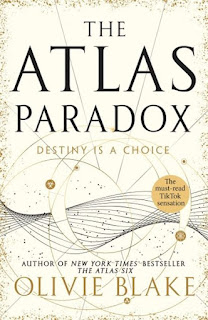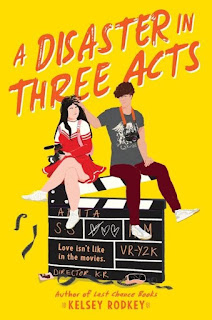The Atlas Paradox
By: Olivie Blake
Location: FIC BLA
Genre: Fantasy Fiction LGBT
The Atlas Paradox is the long-awaited sequel to dark academic sensation The Atlas Six—guaranteed to have even more yearning, backstabbing, betrayal, and chaos.
Six magicians. Two rivalries. One researcher. And a man who can walk through dreams. All must pick a side: do they wish to preserve the world—or destroy it? In this electric sequel to the viral sensation, The Atlas Six, the society of Alexandrians is revealed for what it is: a secret society with raw, world-changing power, headed by a man whose plans to change life as we know it are already under way. But the cost of knowledge is steep, and as the price of power demands each character choose a side, which alliances will hold and which will see their enmity deepen?”
Great interview with the author here:
Can we expect more Filipino characters in the future? Can you give us a hint on what they’ll be like?
There is another character coming in the next installment of the Atlas series who is Filipina in origin. Even in book 1, before she arrived in the story, I knew I was going to face the subject of climate change and global resource inequity head-on from the perspective of someone from a country without Western political capital—a country that, despite being severely affected by climate change, would be unfairly overlooked on a global stage. Like, say, an island nation that stands to lose millions of dollars and hundreds of lives annually as sea levels continue to rise and extreme weather poses a constant threat, but doesn’t register for long on the average American-dominated Twitter feed.
It’s pretty ugly to phrase it that way, I know, but I think it’s a realistic ugliness—just as imperialism has determined the location of the Alexandrian Society, colonialism has determined who gets to dominate the narratives we read. It was a conscious choice for me to take someone with the motivations and rhetorical prowess of Greta Thunberg, but with arguably higher geographic stakes and without the whiteness that makes her more universally palatable. (Which is not to diminish Greta, who is admirable in countless ways—it’s just to point out what might potentially serve as added social capital, or what might be taken as more of a threat purely as a result of the optics.)
The Filipina character of Belen Jiménez isn’t like Bel Maier, who is based on my personal experience growing up first-gen. But Belen is still personal in that she’s the kind of woman who dominated my familial narrative. She’s partially modeled off the way my godmother dressed after she first arrived in California; she’s named after my mom’s best friend at university and carries my grandmother’s maiden name; her adopted moniker comes from my great-grandmother. Belen will likely be called a minor character in terms of being outside the series’ six main points of view, but she is critical to the story I’m telling about knowledge and power.



Comments
Post a Comment